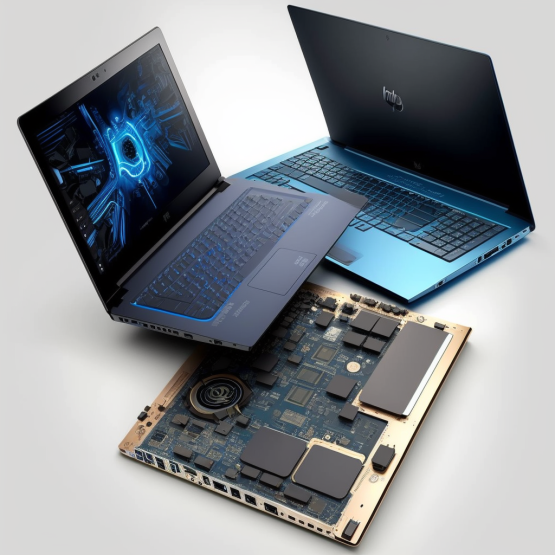Mar 14, 2023 / By Al Soad / in Tips and Tricks
Lives getting easier, busy, and smooth. All over the world, portable, fast technology is word of mouth now. From students to job holders or business persons; laptops have become a necessity now. For work, entertainment, or both, it's important to choose the right laptop to meet your needs. You can find a lot of options available in the market which makes it more confusing to make the right choice. A comprehensive guide to choosing the right laptop. What you need to consider when buying a new laptop.
The central processing unit (CPU) is the brain of your laptop. So it's important to choose one that is powerful and efficient. Intel and AMD are the two leading manufacturers of CPUs, and both offer a wide range of options to choose from. When it comes to choosing a CPU, it's important to consider its clock speed, number of cores, and threads. A higher clock speed means the CPU can perform faster. And more cores and threads allow the CPU to handle more work.
The graphics card (GPU) handles rendering graphics. If you are planning on gaming or content creation it's an important component to consider. There are two types of GPUs: integrat and dedicated. Integrated GPUs are integrated into the CPU and are enough for general use. But dedicated GPUs are separate components and are mostly used for demanding tasks. Nvidia and AMD are the two leading manufacturers of GPUs, and both offer a wide range of options to choose from.

It's important to consider your laptop's size, resolution, and aspect ratio. A larger screen size is good for entertainment, while a smaller size is more portable. The resolution determines the clarity of the image. And the aspect ratio determines the shape of the screen.
Random access memory (RAM) is used by the laptop to store data temporarily. More RAM means your laptop can handle more tasks and perform faster. It's recommended to have at least 8GB of RAM for general use, 16GB for gaming, and 32GB for content creation. When choosing RAM, it's important to consider the clock speed, capacity, and type (DDR4, DDR5, etc.).
Storage is used to store your operating system, applications, and data. There are two types of storage: solid-state drives (SSD) and hard disk drives (HDD). SSDs are faster and more reliable than HDDs, but they are also more expensive. For general use, a 250GB SSD is enough. But for gaming or content creation, you need a larger capacity SSD. It's also possible to have a combination of both. Then using an SSD for the operating system and applications, and an HDD for data storage.
Battery life is an important consideration for a laptop, especially if you plan on using it on the go. The battery life of a laptop is including the processor, screen size, and graphics card. It's important to choose a laptop with good battery life. It will ensure that you can use it for extended periods of time.
It's important to choose one that fits your budget. Laptops range in price from within your budget. Expensive laptops typically offer better performance. But there are also many affordable options that offer good value for money. It's important to strike a balance between performance and affordability. And to choose a laptop that meets your needs without breaking the bank.
In conclusion, choosing the right laptop requires careful consideration. By understanding the role of each component, you can ensure that your laptop will perform the way you want it to. A well-balanced setup will provide the right combination of power, performance, and efficiency to meet your needs. So, by choosing the right laptop, you'll gain a better computing experience.
Tags: laptop Technology CPU GPU RAM storage Battery Life Screen Size Price Intel AMD Nvidia AMD Radeon DDR4 DDR5 Solid State Drive Hard Disk Drive gaming content creation Portability Performance Efficiency Budget
Mar 18, 2023 by Al Soad
Mar 18, 2023 by Al Soad
These cookies are essential for the website to function properly.
These cookies help us understand how visitors interact with the website.
These cookies are used to deliver personalized advertisements.
